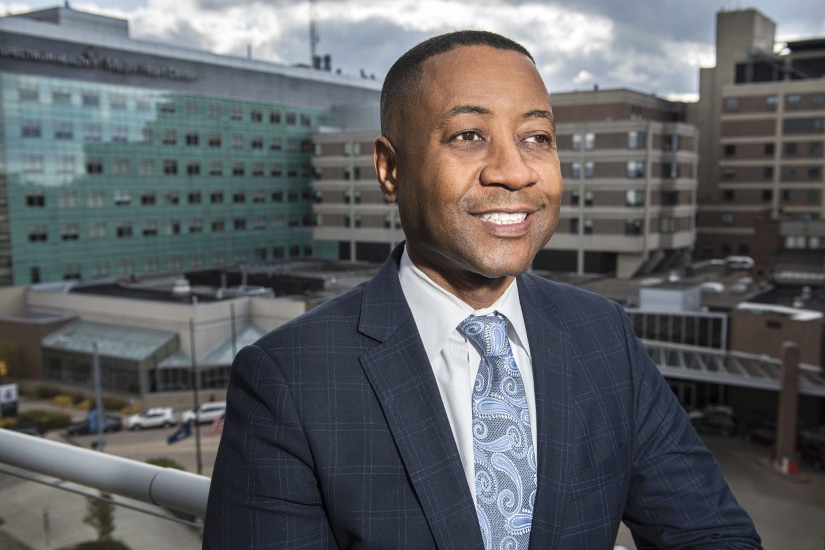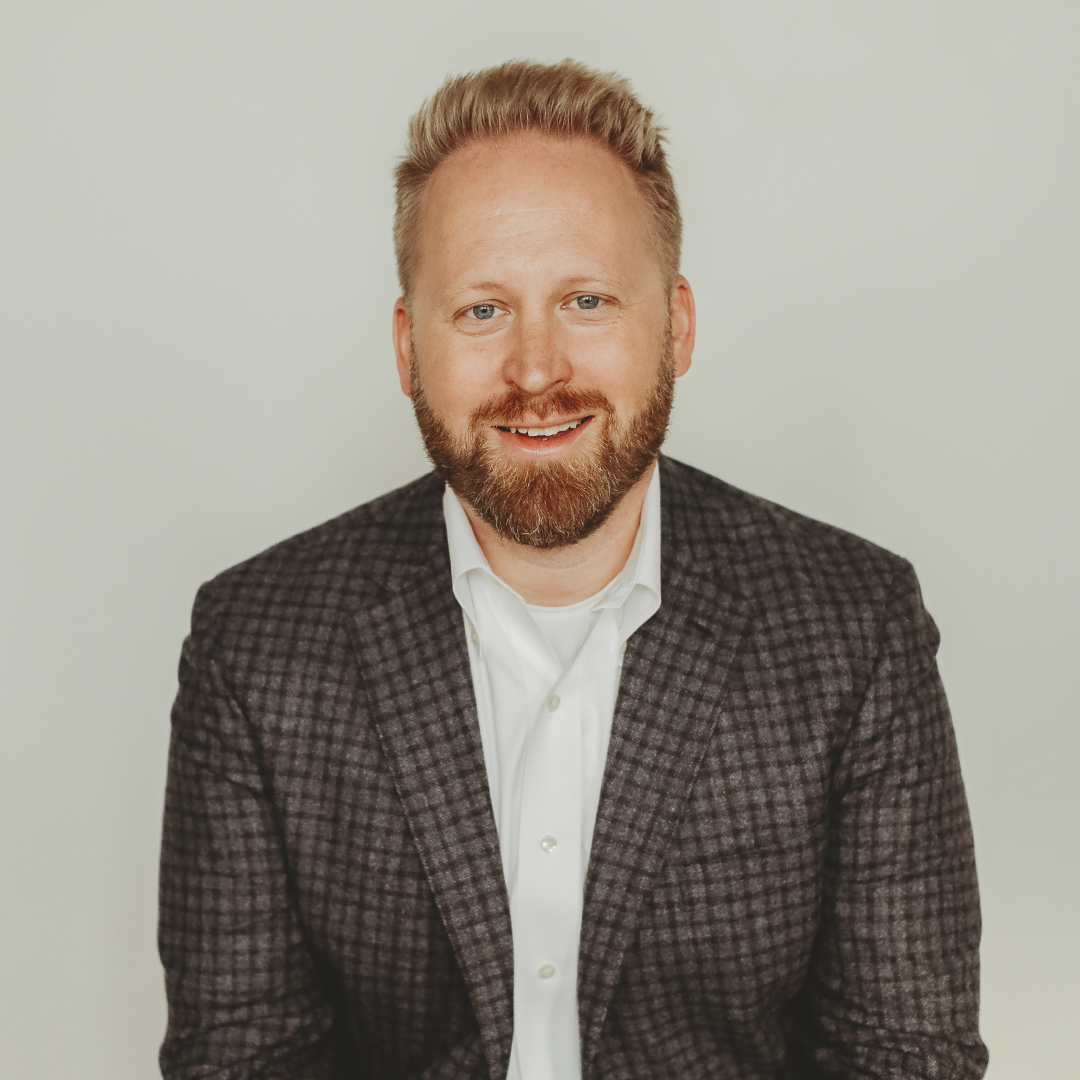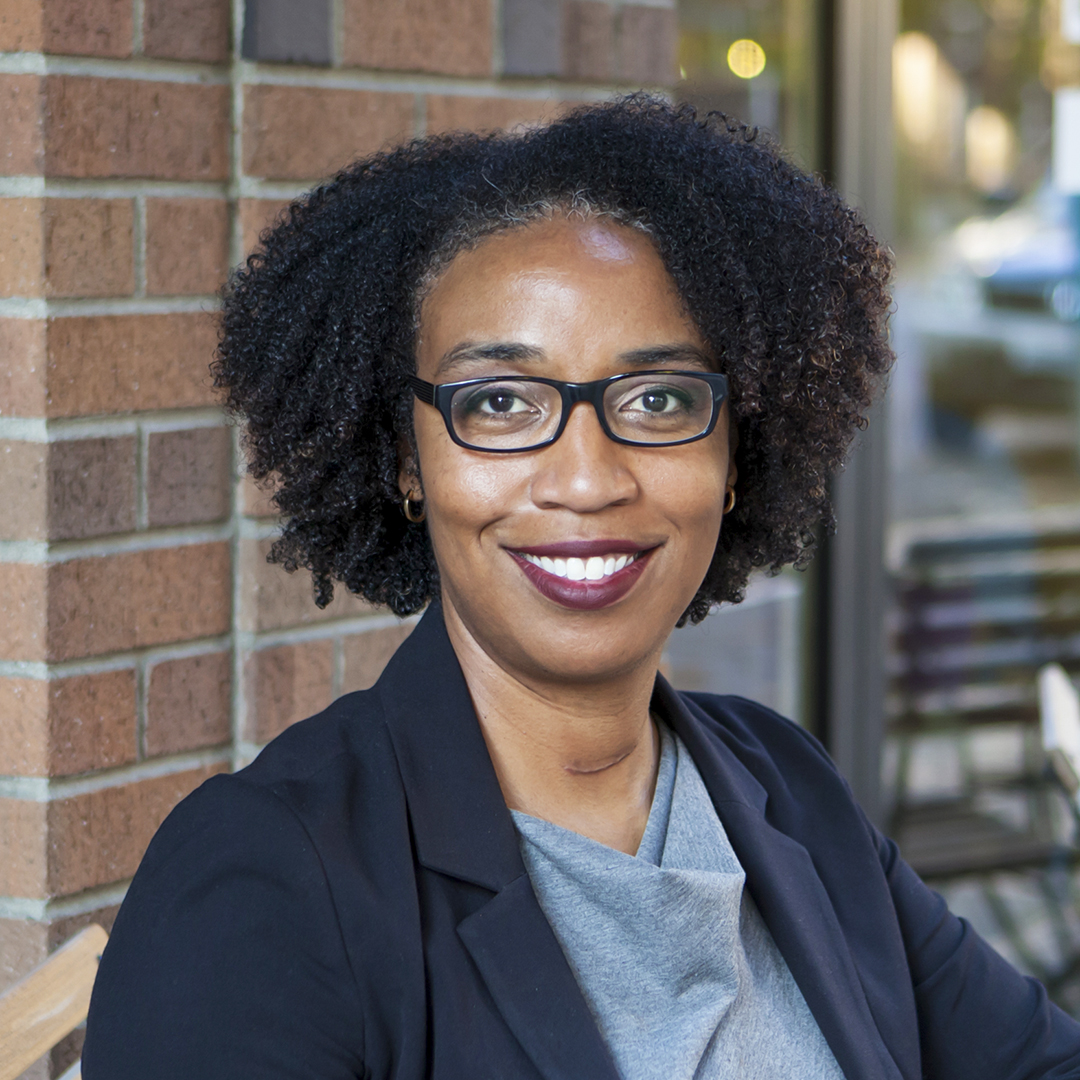If you asked Ovell Barbee how he would describe himself, you would probably hear something along the lines of, “I’m a foodie and a runner.” But if you asked that same question of anyone who knows Barbee, you would get a completely different answer.
To employees at Spectrum Health and residents of Grand Rapids, Michigan, Barbee is a leader and change maker. A role model and mentor. A visionary human resources leader, a passionate advocate for diversity and inclusion, and an integral part of the community he calls home.
“I was actually born in one of the hospitals that make up the Spectrum Health system,” says the senior vice president of human resources and chief diversity officer. “I grew up in a family that encourages hard work and education and began working when I was twelve years old. Dealing with the circumstances associated with working at such a young age, that really made me want to serve as an advocate for other individuals who may not have a seat at the table.”
That passion led Barbee to the University of Michigan, where he obtained a bachelor’s in communications as well as a master’s in social work, and also to Michigan State University, where he earned a master’s in labor relations and HR.
After completing his education, Barbee left his Michigan roots behind for about fifteen years, securing progressive leadership roles at General Motors/On Star, the Canadian National Railway, Career Education Corporation, Dow Kokam, and Blue Cross Blue Shield of Nebraska.
The Spectrum Experience
But in 2016, Barbee decided to return to Grand Rapids and accept the SVP position at Spectrum Health, a nonprofit integrated healthcare organization and the largest employer in the state of Michigan. He now leads the company’s diversity, equity, and inclusion team in addition to the talent acquisition and employee relations teams.
Working in his hometown, Barbee says, he feels a “duty and an obligation” to assure others that Spectrum is an excellent place to seek help and care as well as to work as an employee. As an HR leader, Barbee works daily to improve the employee experience—for all Spectrum employees.
“We have to be open and receptive to having conversations to really effect change,” Barbee says of his efforts to promote equity and inclusion at Spectrum. “Dialogue is crucial to progress: I find that when people tell me stories of adverse incidents or issues that have happened to them, I ask, ‘Did you say anything?’ And a lot of times, the answer is no. We have to stop the silence and use our voices as a catalyst for change.”
Since joining Spectrum, Barbee has been working hard to change those answers. To measure the impact of those efforts and the progress the organization has made as a whole, Spectrum is conducting an organizational assessment focused on diversity, equity, and inclusion. “We want to establish a baseline and identify the priority areas where we need to either really focus our efforts or use a different strategy altogether,” Barbee remarks.
“We have to be open and receptive to having conversations to really effect change. Dialogue is crucial to progress.”
Making Equity a Priority
But Spectrum already knows what one of its priority areas is, Barbee says: the future of the organization. “We’re focusing on attracting and retaining diverse leaders, which will be very important for us as we become more innovative and more reflective of the community that we’re in,” Barbee notes.
All of Spectrum’s senior leaders are actively involved in the conversation on diversity, equity, and inclusion, Barbee says. But Spectrum’s commitment to those values goes far beyond those conversations. “We have recognized through the 1-2-3 Equity Pledge that that message has to be carried by more than any one individual,” emphasizes the SVP.
The 1-2-3 Equity Pledge is a national call-to-action driven by the American Hospital Association. Signing it represents Spectrum’s commitment to cultural competency, community engagement, workforce diversity, and equity of care.

“The objective is to ensure comparable outcomes for our patient population while creating and strengthening community partnerships, improving health outcomes, and reducing health inequities within the community,” Barbee explains. “We’re taking a system-wide approach to enable the organization to fulfill the requirements of the pledge.”
A Community Investment
But the Equity Pledge isn’t the only pledge Barbee has made to help improve the Grand Rapids community. Since moving back to Michigan, Barbee has repaid all of the scholarship monies he received from nonprofit organizations, a goal he established for himself. He most recently paid back the final one to the Grand Rapids Community College Foundation on behalf of the Ta-wa-si group. He has also committed to covering the cost of books and supplies for one local student’s four-year education every year.
“I call the students my Barbee Book Club,” the SVP says with a laugh. “People invested in me and my career, and I tell each of them to remember my investment in them and to be willing to do that for someone else in future.”
In recognition of his dedication to giving back, Barbee has been named as a 2020 Walter Coe Public Service honoree and a member of the Top 50 Human Resources Professionals List. “I am a product of my community,” Barbee says simply. “I do what’s needed.”
Based in Chicago, The Exeter Group offers healthcare organizations comprehensive ways to examine and increase equity across the community/suppliers, workforce, patient population, and finally, the individual patient. Our solutions span talent acquisition, leadership development, and organizational development. Assessing cultural competency perceptions through the COA360 is one tool our clients leverage.


